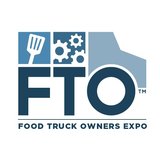Technology
QSR operators turn to automation as turnover, costs rise

June 3, 2024
As the restaurant industry grapples with record-high employee turnover and food costs, operators are increasingly looking to automation to improve efficiency and customer satisfaction.
The traditional solution of raising menu prices is no longer sustainable, forcing brands to explore new avenues. A webinar titled "When Raising Prices Isn't Cutting It: How AI Automation Cuts Costs and Customer Complaints" sponsored by PreciTaste and hosted by Networld Media Group, explored how artificial intelligence can be used for kitchen task management, potentially leading to a trifecta of benefits: reduced employee turnover, minimized food waste and improved customer service.
These advancements promise to enhance the experiences of both customers and employees. Streamlined operations can lead to faster service times and a more consistent dining experience for patrons. For staff, automation can alleviate repetitive tasks and potentially create a more attractive work environment, aiding in retention efforts.
Speakers for the event included Ingo Stork, co-founder and chief executive officer of PreciTaste, Kelly MacPherson, chief supply chain and technology officer for Union Square Hospitality Group and Chef Bill Kim, founder of fast casual brand Urbanbelly. Mandy Detwiler, editor of Pizza Marketplace and QSRweb, served as moderator for the webinar.
According to PreciTaste, 55% of consumers are dining out less frequently largely due to price increases. But AI can help reduce costs.
"I think everyone in the restaurant industry is struggling from rising costs," Stork said. "We have rising labor costs that are scaring operators" causing them to question what they can do to navigate the current situation.
PreciTaste makes AI for restaurant operators, and Stork said many people have only experienced AI through chat assistants.
"Lately in the past two years we see increasing capabilities from AI, and I can talk with it. I can chat with it, and we see those benefits coming more to life and approaching fast," Stork said. "Many people ask 'how can it help me? What does it do? That's an area where we are focusing on."
PreciTaste's AI system serves as a co-pilot in the kitchen to aid workers in determining when product is low, customer traffic and what to sell in the upcoming weeks, aids in scheduling employees and more.
"There's a lot of hands-on things that need to be done all the time in the kitchen and that's what we're having a platform (for) as an assistant manager in the kitchen that uses computer vision in the background, and we actually understand automatically so nobody needs to push buttons what's going on in the background," Stork added.
Detwiler asked Kim what factors are causing crew burnout. Kim said restaurants are a high-pressure environment, there are long hours, tasks are repetitive, it's physically demanding work and overall, there's a poor life/work balance.
For the customer, that can result in inconsistent food quality, slower service increase mistakes in the front and back of the house, and since 2020, higher turnover frequently causes changes and can disrupt consistency and reliability of staff members.
MacPherson reiterated that repetitive tasks are a big motivator in her company's restaurants.
"It's a hard job," she said, "and when you walk into the restaurant for your shift, what you'd kind of planned for the day generally never works out that way."
To learn more about PreciTaste's AI kitchen management system, click here to watch the webinar in its entirety.







